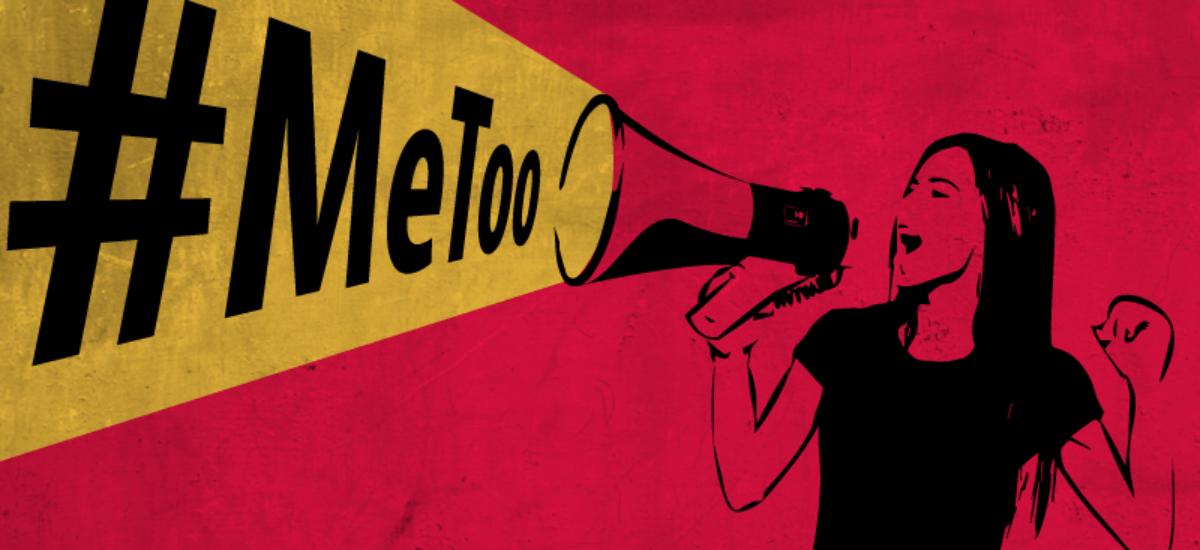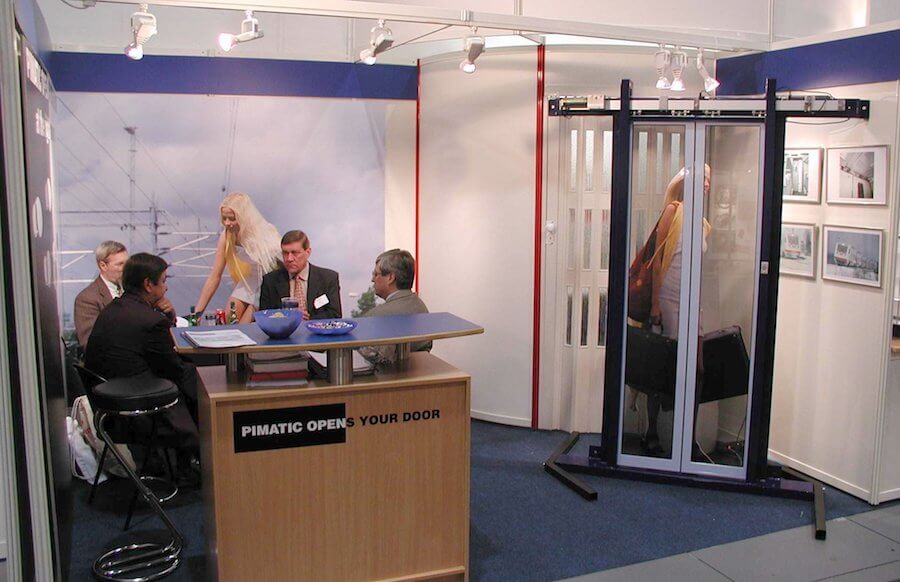By K. P. Brookes
‘It’s not true what everyone says about you, I think you are fit enough to sleep with pigs’.

A rail manager thought nothing of saying this to a subordinate. Even though the subordinate made requests for the comments to stop, the manager repeated this regularly for the next two years, only varying the type of animals his colleague was supposedly attractive enough to have sexual relations with.
Whether you think this is disgusting or just a bit of harmless banter, sexual harassment is clearly defined (Citizens Advice) as unwanted behaviour of a sexual nature that violates someone’s dignity, makes them feel intimidated, degraded or humiliated or creates a hostile/offensive environment. It is worth noting that such harassment can also include sexual comments, jokes, unwelcome sexual advances, displaying pictures of a sexual nature and sending inappropriate emails.
Significant research concludes that for millions of people sexual harassment is a common feature of their working lives. Sexual harassment is also down to the judgement of the person on the receiving end. If they are feeling sexually harassed, then it should be their right to challenge it.
It has been nearly ten years since the Mail Online
‘accused the bosses of Network Rail of paying millions of pounds of taxpayers’ money in compensation to staff, including payments for allegations of race and sex discrimination by one of the firm’s senior executives’ (19 April 2009).
This was followed up by a report in the Guardian in 2011, which named Peter Bennett as the executive. Antony White QC was appointed by Network Rail to investigate allegations of impropriety within the company. During his investigation White expressed his amazement at Bennett’s behaviour and that there was no record of him ever being disciplined. He also heard evidence about Bennett’s
‘bullying and blatant sexist language and conduct, including the routine use of offensive comments and jokes and inappropriate physical advances to female colleagues’.
The QC also looked into separate allegations that the company misused public funds by
‘repeatedly paying off staff to avoid embarrassing industrial tribunals’.
(This does not appear to have been disputed by Network Rail at the time.)
In the decade since these reports, has the attitude towards sexual harassment within the rail industry really changed? With the international spotlight firmly focused on the film industry and political sphere, is it not time that the rail industry takes a long uncomfortable look at itself?
Under the Equality Act of 2010, sexual harassment is a form of unlawful discrimination. Cases of harassment from people employed within the rail industry range from inappropriate jokes and comments, displays of offensive images, unwelcome physical contact, to stalking and even sexual assault.
The 2016 (10 August) “Still just a bit of banter? Sexual harassment in the workplace in 2016” study by the Chartered Institute of Personnel and Development (CIPD), via the Trade Union Confederation (TUC), is the largest of its kind for a generation and is cited by leading academic Dr Jane Pillinger as one of the most extensive pieces of research on sexual harassment at work in Europe. Carried out by YouGov, the research was based on the opinion of women who were working or who had ever had a job and were happy to be surveyed about this topic, from an overall sample of British adults.
Of those surveyed
- More than half (52%) of women, and nearly two-thirds (63%) of women aged 18-24 years old said they have experienced sexual harassment at work (according to research from the TUC in collaboration with the Everyday Sexism Project).
- Nearly 1 in 3 (32%) of women had been subject to unwelcome jokes of a sexual nature while at work.
- More than 1 in 4 (28%) of women had been the subject of comments of a sexual nature about their body or clothes at work.
- Nearly a quarter (23%) of women had experienced unwanted touching.
- A fifth (20%) of women had experienced unwanted verbal sexual advances at work.
- Around 1 in 8 (12%) of women experienced unwanted sexual touching at work.
Perhaps the most disturbing statistic of all
- Nearly 4 out of 5 (79%) of women who experienced sexual harassment at work did not tell their employer what was happening. Of this group (28%) thought reporting would impact negatively on their relationships at work, (15%) feared it would affect their career prospects, while (20%) were too embarrassed to talk about it and a further (24%) felt they would not be believed or taken seriously.
Harassed employees can be reluctant to come forward because of fears that their concerns will not be addressed or that the report will be trivialised and subjected to ridicule. It is essential for employers to facilitate a work climate where people feel comfortable to speak up because, ironically, if victims choose to ignore any unwelcome behaviour it will often then be escalated by the perpetrator. Silence is regarded as acceptance, as detailed in the TSSA Rep’s bulletin ‘An absence of complaints about sexual harassment does not necessarily mean an absence of sexual harassment’.
Both men and women suffer from sexual harassment and should have the same rights to the protection of their dignity. Studies have found that sexual harassment is still endemic, often hidden, and present in all kinds of companies.
Often in harassment cases, colleagues know exactly what is going on but say nothing. When the employee in the instance detailed at the beginning of this article finally reached breaking point, and raised their concerns to Human Resources, the dozens of people who overheard the remarks were struck down with total amnesia. No one who had heard the comments, would remember them. As the victim had feared, they were then completely isolated by their colleagues. The manager in question was vindicated and the rest of the team were so disrespectful and dismissive of the person who had raised the complaint, that they inevitably sought employment elsewhere.
This is not an isolated incident. When a rail trainer ‘joked’ to the people in his training group that he was in a sexual relationship with the only female trainee, the men in the group all laughed at her embarrassment. When Human Resources spoke to the trainees to ascertain what had been said, not one of the group could remember anything about these comments. The onus remains on the individual to prove that the harassment has taken place and with the existing code of silence, this is next to impossible.
A 2014 study Violence Against Women by the European Union Fundamental Rights Agency (TUC – ‘Protection from Sexual Harassment, brochure) found that one in three women who had experienced sexual harassment felt fearful as a result, while one in five felt ashamed of what had taken place. Subsequent feelings of vulnerability were experienced by 20% of women, anxiety by 14% and loss of self-confidence by 13%.
Sexual harassment can have a long-lasting and devastating effect on the health, confidence, morale and performance of those on the receiving end. Anxiety and stress commonly lead employees to be less efficient at work, to take sick leave or seek employment elsewhere. This can in turn impact their future career prospects. There may also be damaging impact on those who witness or are aware of this unwelcome behaviour in their work place. Ultimately the employer will also suffer.
With so many widely publicised investigations over recent years, it would be fair to conclude, that there may be sexual harassers in every industry and in every walk of life. It is how we, as an industry, address these types of issues moving forward that will define us in the future.
Any business where there is an imbalance of power can be a breeding ground for a culture of harassment. While women and minority groups are making their way through the ranks there is still a great power divide. Groups within the industry are seeking to redress the balance.
ASLEF, for example, have declared a genuine commitment to a diverse railway industry which ‘represents 21st century society’. They have acknowledged that within the grade of train driver (which constitutes the overwhelming majority of ASLEF members) very few women and black and ethnic minority people are employed. They have recognised the impact of member issues including harassment and introduced an aspirational Equality and Diversity Charter in 2015.
Unfortunately, not everyone shares this commitment of significantly reducing or eliminating cases of sexual harassment in the workplace. Following the recent incident at the Presidents Club, the Fawcett Society released a report saying that until 2010, section 40 of the Equality Act protected employees from sexual harassment from third parties in the workplace.
In 2013 this was repealed so employees are not protected from sexual harassment at work if they are harassed by a customer, client or contractor! Organisations like the Presidents Club could turn a blind eye to blatant sexual abuse because they weren’t culpable. With so many rail employees in customer-facing roles, is it not time that we took the lead in providing specific protection for our personnel?
The #MeToo movement is proving that those who commit sexual harassment can and will be held accountable by the people who work for or with them. As an industry we have the chance to take the lead, ensuring that perpetrators are held accountable by their workplace until the law has a chance to catch up. Our other option is to continue to ignore, undermine or placate those unfortunate enough to be experiencing sexual harassment at work. And in that world situations like the following won’t stop: when an employee arranged to meet a senior manager after being on the receiving end of lewd texts and unwelcome physical contact from their line manager, the senior manager said,
‘I do not want to hear anything derogatory about your manager’.
And that was that.
If you have been affected by issues raised in this article, please contact your Union or Citizens Advice.
The TUC Protection from Sexual Harassment 2016 ‘Know Your Rights’ Booklet, also contains a lot of valuable information.
The Equality Committees produce a newsletter called Equally Driven. This is available to all women, ethnic minority and LGBT ASLEF members. Please contract Head Office on 020 7324 2400. Alternatively, you can also view a copy online.























